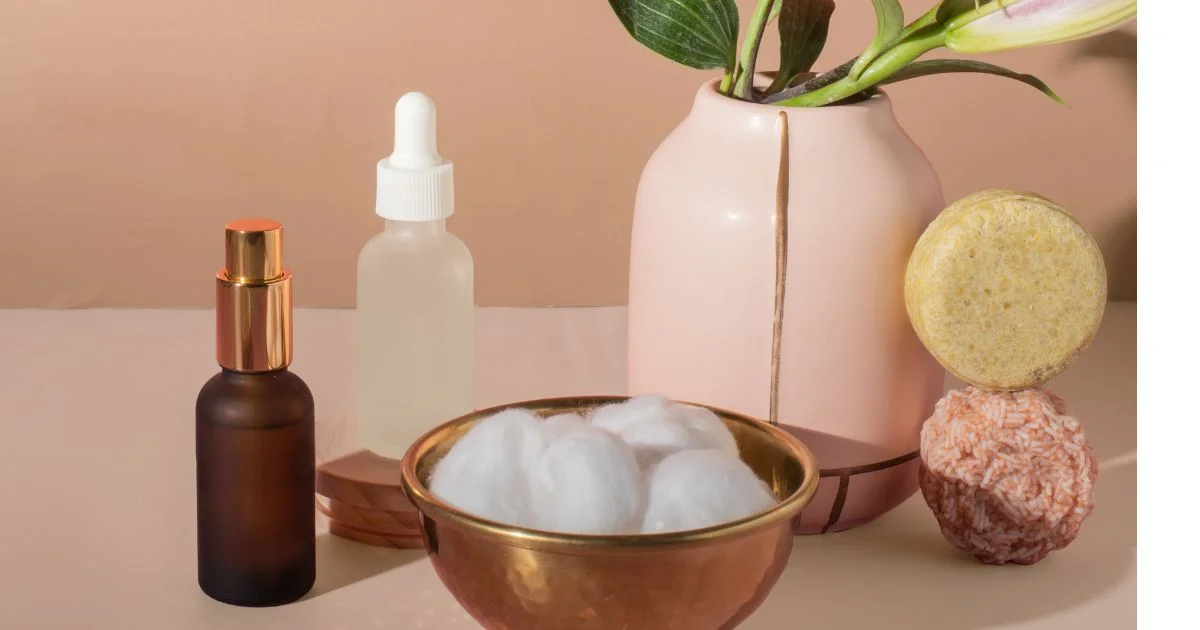Actives in skin care are the powerhouse ingredients in skincare formulations that provide targeted benefits for the skin. These ingredients can range from vitamins and antioxidants to exfoliants and peptides. Actives work by penetrating the skin to stimulate collagen production, reduce hyperpigmentation, and improve skin texture and tone.
One of the most popular ingredients in actives in skincare is retinol, a form of vitamin A that is widely used to improve the appearance of fine lines, wrinkles, and age spots. Another popular active is vitamin C, a potent antioxidant that can brighten the skin, reduce hyperpigmentation, and protect against free radical damage.
While actives in skin care can provide numerous benefits for the skin, it is important to use them properly and in appropriate concentrations to avoid skin irritation or other adverse reactions. It is recommended to introduce new actives gradually and to consult with a skincare professional or dermatologist if unsure about how to use them. With the right approach, actives can be a game-changer for achieving healthy, glowing skin.

What are Actives?
Actives in skin care are ingredients in skin care products that are specifically designed to provide a specific benefit to the skin. These ingredients work by penetrating deep into the skin to target specific skin concerns such as fine lines, wrinkles, acne, and hyperpigmentation.
You may also like:Retinol for Beginners: Unlocking the Secrets to Youthful Skin Niacinamide and Glycolic Acid:10 effective benefits of the Power Duo for Skin Care Can Niacinamide and Retinol be used together?The Dynamic Duo for Skincare Hyaluronic Acid and Retinol: Unlocking the Secrets to Youthful Skin Can Retinol and Vitamin C be used together?10 Effective Benefits Can Niacinamide and Salicylic Acid be used together? 10 Powerful benefits
How do Actives Work?
Actives in skin care work by targeting specific skin concerns through a variety of mechanisms. Some actives work by stimulating collagen production, which helps to improve the appearance of fine lines and wrinkles. Others work by inhibiting the production of melanin, which can help to reduce hyperpigmentation and dark spots.
Common Actives in Skin Care
Here are some of the most common actives in skin care found in skin care products:
1.Retinoids
Retinoids are powerful actives in skin care that are a form of vitamin A that work by increasing cell turnover and stimulating collagen production. They are often used to treat acne, reduce the appearance of fine lines and wrinkles, and improve the overall texture of the skin.
2.AHAs and BHAs
AHAs (alpha hydroxy acids) and BHAs (beta hydroxy acids) are exfoliating agents that work by removing dead skin cells from the surface of the skin. AHAs are water-soluble and work best on the surface of the skin, while BHAs are oil-soluble and can penetrate deep into the pores to help unclog them. AHAs and BHAs both are actives in skin care.
3.Vitamin C
Vitamin C is a powerful actives in skin care which have antioxidant that helps to protect the skin from environmental stressors such as pollution and UV radiation. It also helps to brighten the skin and reduce the appearance of dark spots.
4.Niacinamide
Niacinamide is one of actives in skin care it is a form of vitamin B3 that helps to improve the skin’s barrier function and reduce inflammation. It also helps to reduce the appearance of pores and hyperpigmentation.
5.Hyaluronic Acid
Hyaluronic acid powerful actives in skin care it is a humectant that helps to hydrate the skin by attracting and holding onto moisture. It can help to plump up the skin and reduce the appearance of fine lines and wrinkles.
Conclusion:
Actives in skin care are an important part of any skin care routine as they can help to address specific skin concerns and improve the overall health and appearance of your skin. However, it’s important to use actives properly as some can be irritating or cause sensitivity if used incorrectly. Consult with a dermatologist or skin care professional to determine which actives are best for your skin type and concerns.
Remember, a good skin care routine is not just about using actives, but also about using products that are gentle and non-irritating, and protecting your skin from the sun and other environmental stressors.
Disclaimer:
The information provided in this article is for educational and informational purposes only and should not be considered as a substitute for professional consultation.
FAQs
What is an example of actives in skincare?
Examples of actives in skincare include ingredients like retinol, vitamin C, and hyaluronic acid.
What are actives in face care?
Actives in skin care refer to ingredients that actively target specific skin concerns, such as aging, hyperpigmentation, or acne. These ingredients can include retinoids, AHAs/BHAs, antioxidants, and peptides, among others.
Is niacinamide an active?
Yes, niacinamide is considered an active ingredient in skincare due to its ability to target various skin concerns, including improving skin texture, reducing hyperpigmentation, and regulating oil production, among others. It is a form of vitamin B3 that is widely used in skincare formulations.
Are actives good for skin?
Actives can be good for the skin when used in appropriate concentrations and formulations, as they can help address specific skin concerns and provide a range of benefits, such as improving texture, reducing hyperpigmentation, and increasing collagen production, among others. However, it is important to use actives properly and not overdo it, as excessive or incorrect use can cause skin irritation or other adverse reactions.
Is hyaluronic acid an active acid?
Hyaluronic acid is not an active acid in the traditional sense, as it does not exfoliate the skin or have a direct impact on cellular activity. However, it is considered an active ingredient in skincare due to its ability to deeply hydrate the skin and improve its texture and appearance.
Is vitamin C an active ingredient?
Yes, vitamin C is considered an active ingredient in skincare due to its ability to provide a range of benefits, including brightening the skin, reducing hyperpigmentation, and increasing collagen production. It is a potent antioxidant that can help protect the skin from free radicals and other environmental stressors.
What actives brighten the skin?
Actives that are known to brighten the skin include vitamin C, alpha-hydroxy acids (AHAs) like glycolic and lactic acid, kojic acid, and arbutin. These ingredients can help reduce hyperpigmentation and improve skin tone for a brighter, more radiant complexion.
What is the difference between serum and actives?
Serum refers to the type of skincare product, while actives refer to the specific ingredients contained in the product. Serums can contain a variety of ingredients, including actives, which can provide various benefits to the skin, such as hydration, brightening, and anti-aging.
Can I use actives everyday?
The frequency of use of actives depends on the specific active ingredient and the individual's skin type and concerns. Some actives, like vitamin C and hyaluronic acid, can be used daily, while others, such as retinoids and AHAs/BHAs, may need to be used less frequently due to their potential for skin irritation.
Can I use 3 actives at once?
Using multiple actives at once can be beneficial for targeting multiple skin concerns, but it is important to use them in appropriate concentrations and formulations to avoid skin irritation or other adverse reactions. It is recommended to introduce new actives gradually and to consult with a dermatologist or skincare professional if unsure about how to combine actives.



